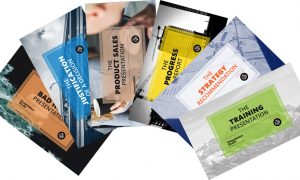The Science of Calming Down an Anxious Presenter


It was Jerry Seinfeld who pointed out that people’s fear of public speaking was such that if you go to a funeral, you’re better off in the casket than doing the eulogy! That might be an extreme view to take, but it is true that a huge number of those who have to speak in public are terrified. There are many methods put forward to cope with this but in this article Sara Seamons shares the scientific findings supporting some of the most reliable strategies – some of which might surprise you…
For some of us, performance anxiety is just a fact of life. Even if you don’t believe that human beings fear public speaking more than they fear death, public speaking anxiety consistently drifts to the top of American fear surveys, right alongside terrors like heights and claustrophobia. And the vast majority of us understand why.
Personally, I have a long string of mortifying performance experiences to my name. As nerve-racking as it was for my young self to perform a violin solo or introduce myself to a group of strangers, nothing compared to standing up in front of a class to present. Sounding intelligent and remembering what on earth you’re talking about isn’t easy when you’re trying to keep your voice steady and your legs from collapsing under you. I know the feeling.
I’m happy to say that my own performance anxiety has calmed down significantly over the years, but not everyone is so lucky. Plenty of people find themselves facing high-stakes speaking opportunities. And sometimes their stage fright is so debilitating that they can’t go through with the speaking engagement at all. What’s a person to do?
The good news is that many researchers are studying this dilemma, mostly in a classroom setting. Several have published their discoveries of how to help students overcome their public speaking fears, and overall the recommendations fall into three broad categories:
- Positivity
- Preparation
- Video
Look on the Positive Side
Unsurprisingly, there’s a lot of negativity and fear wrapped up in presentation anxiety. People who are afraid of speaking in public often feel that way because they’ve had bad experiences in the past. The result is that they spend an inordinate amount of time mentally dwelling on all the horrible things that could happen during the presentation.
In a study from Dublin City University, researchers discovered that Oral Communication Apprehension (OCA) is largely caused by a fear of humiliation in front of your peers. Pretty understandable, right? But this same study also figured out how to help. The researchers discovered that anxious students who received positive feedback from their instructor and peers consistently experienced a drop in their average anxiety levels over time.
People with presentation anxiety have been trained to associate presenting with fear. The only way to break free of this is to retrain the brain to make new, positive associations. Instructors can do a lot to help students overcome this by pointing out what students are doing right and then moving on to the improvements. This is one of the most psychologically motivating methods for any kind of skill development, and students in the Dublin study experienced significant improvement and decreased performance anxiety in response.
So even if you’re naturally afraid of presenting or have had bad experiences, ask a close friend or mentor for some positive feedback. This will build up your reservoir of positive feelings and experiences surrounding your public speaking experiences and allow your anxiety to cool down.
Always Be Prepared
Yet another key finding of the Dublin study was that a student’s level of preparation for a presentation was directly correlated with how nervous they got. This probably sounds like common sense, but giving yourself lots of opportunities to practise a speech is one of the easiest ways to make sure you feel calmer while you’re delivering it.
The study also discovered that repeated practice is the key to making presenting a more enjoyable – insert less terrifying – experience for you. By all accounts that makes perfect sense. It goes back to the concept of building up a bank of positive experiences and training your brain that presenting isn’t such a horrible thing. The more you present, the more positive experiences you’ll have and the better you’ll get at delivering those speeches.
Get Recording
This last tip may not be the most widely practised, but considering the research, it most definitely should be. In another fascinating study on communication apprehension, two researchers discovered that recording presentations and watching them afterwards significantly reduces anxiety in student presenters.
Now I know what you’re thinking: how could recording a presentation and then forcing a student to watch themselves on screen possibly improve their nerves? Wouldn’t that just make them more terrified? While it’s true that some students became even more anxious when faced with this new format, every single student in the study experienced a drop in their performance anxiety by watching themselves present on video. It turns out that watching yourself do anything is extremely enlightening in showing how well you’re doing, what you need to improve, and how much better you did the second or third time you tried.
The researchers were extremely impressed by just how effective video recordings were at training the fear out of presenters. Turns out this record-and-critique method is one of the fastest ways to improve presentation skills and boost self-awareness at the exact same time. And this wasn’t the only study that backs this up. Bottom line? Watching yourself present on video is going to improve your presentation skills remarkably, so why wait to start recording and watching yourself? If technology intimidates you, maybe consider trying out an affordable video coaching platform. There are plenty to choose from.
Better Presentations—A Better You
Gaining some courage and learning to let go of performance anxiety will only benefit your life and your career in the long-term. According to the NACE Job Outlook 2016 survey, more than 68% of employers stated that strong verbal communication skills are among the top five qualities they seek in job candidates. With that in mind, it’s certainly worth it to develop those presenting and pitching skills. And learning how to lower our anxiety while we’re up there will only improve the quality and entertainment value of your presentation. Just remember: no one has ever died giving a speech. At least not that I know of . . .











